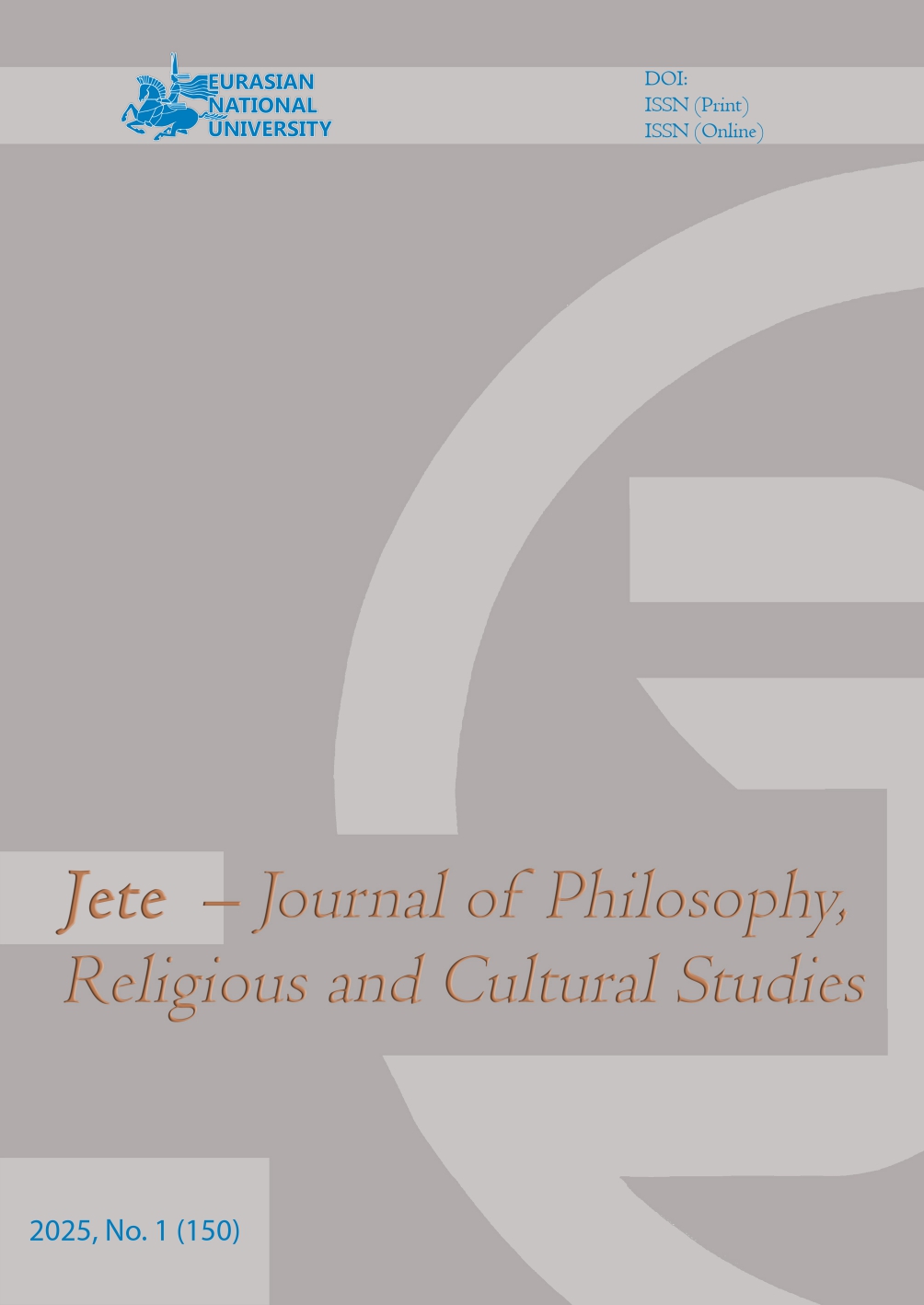Діни партикуляризм: себептері мен көріністері
Қаралымдар: 153 / PDF жүктеулері: 109Кілт сөздер:
діншілдік, дін әлеуметтануы, партикуляризм, фанатизм, діни фундаментализм, толеранттылықАңдатпа
Мақалада партикуляризм ұғымы, оны діни топтар мен дін ұстанушылардағы көрінісі талданған. Діни партикуляризмнің алғышарттары, дін ұстанушыдан өзгелерден діндар болуды талап етушіге айналу үдерісі көрсетілген. Әсіредіншілдіктің күшеюіне діни топтардың ықпалы, топтасу құбылысының, жалпы топтық санадан тобырлық санаға өтудің, оның діндарлыққа әсері талданған. Ақиқатты монополиялаудың себептері мен нәтижесі – әлеуметтану және дін әлеуметтануы зерттеушілерінің тұжырымының негізінде талданған. Партикулярист санадағы топтар мен тұлғалардың қандай ұстаным көрсететіні жеке-жеке сарапталған. Діндарлар қандай дінді немесе бағытты ұстанса да партикулярист діни түсініктен аулақ болып, плюралистік дін түсінігін ұстануының маңыздылығы көрсетілген. Теологтар тарапынан дін – жақсылық пен бейбітшіліктің ордасы ретінде сипатталады. Функционалист теоретиктер де дінді қоғамдық интеграцияның қуатты құралы ретінде көреді және шынайы адамзат қоғамын ынталандыратын ғаламдық мәдениеттің маңызды тірегі екенін айтады. Алайда діннің ұстанушыларының бойындағы көрінісі қоғамда қарама-қайшы пікірлер тудырады. Бұл құбылыс өз кезегінде тұлғалық келіспеушіліктің топтық келіспеушілікке айналуына жол ашады. Бұның ең басты себептерінің бірі де діни партикуляризм. Мақалада дінді меншіктеуден, өзгелерді шеттетуден бас тарту, толерантты ұстаным осы мәселені шешудің бірден бір жолы екендігі көрсетілген








